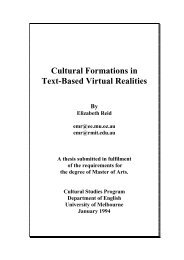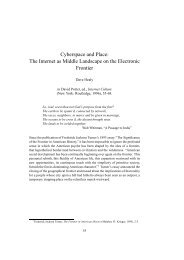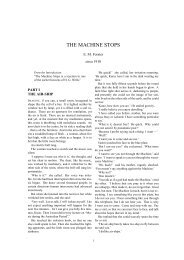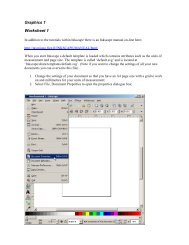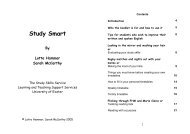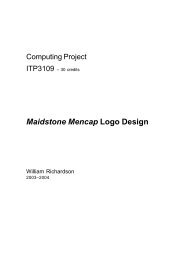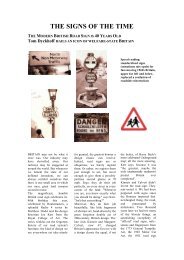PDF - The Metaphysics of Virtual Reality - University of Exeter
PDF - The Metaphysics of Virtual Reality - University of Exeter
PDF - The Metaphysics of Virtual Reality - University of Exeter
You also want an ePaper? Increase the reach of your titles
YUMPU automatically turns print PDFs into web optimized ePapers that Google loves.
intimacy with language. McLuhan noted with approval Heidegger’s treatment <strong>of</strong> language<br />
as a transcendental aspect <strong>of</strong> Being:<br />
<strong>The</strong> alphabet and kindred gimmicks have long served man as a subliminal source<br />
<strong>of</strong> philosophical and religious assumptions. Certainly Martin Heidegger would seem<br />
to be on better ground [than Kant was in assuming Euclidian space to be an a priori]<br />
in using the totality <strong>of</strong> language itself as philosophical datum. For there, at least<br />
in non-literate periods, will be the ratio among all the senses. . . . An enthusiasm for<br />
Heidegger’s excellent linguistics could easily stem from naive immersion in the metaphysical<br />
organicism <strong>of</strong> our electronic milieu. . . . <strong>The</strong>re is nothing good or bad about<br />
print but the unconsciousness <strong>of</strong> the effect <strong>of</strong> any force is a disaster, especially a force<br />
that we have made ourselves. 17<br />
McLuhan suggests that Heidegger’s ideas have a greater appeal to a culture organized<br />
electronically because such a culture has already left behind the detached, linear,<br />
individualistic mentality <strong>of</strong> literate or print cultures. He agrees with Heidegger in asserting<br />
that language technology belongs to us more essentially than does any other<br />
tool. When a technology touches our language, it touches us where we live.<br />
How can we philosophically reflect on the word processor? How can we get beyond<br />
the vague general talk about the dangers <strong>of</strong> the calculative mentality? McLuhan’s<br />
work can help track the impact <strong>of</strong> word-processing technology more specifically and<br />
clearly. But for me it was not McLuhan but an illustrious student <strong>of</strong> his, Walter J.<br />
Ong, who provided a more precise conceptual angle from which I could better see the<br />
language machine. For specific insight into the way that the word processor alters our<br />
thought processes and even our sense <strong>of</strong> reality, I found help in the writings <strong>of</strong> Ong,<br />
who treats the psychodynamics—the shifts in mentality-that occur in Western history<br />
as new technologies for language storage come into prominence.<br />
Ong traces two major shifts in knowledge storage: the oral-to-literate and the<br />
chirographic-to-print shifts. <strong>The</strong> first occurred when the culture moved from a predominantly<br />
oral-<br />
17 H. Marshall McLuhan, <strong>The</strong> Gutenberg Galaxy: <strong>The</strong> Making <strong>of</strong> Typographic Man (Toronto: <strong>University</strong><br />
<strong>of</strong> Toronto Press, 1962), p.66, in a section entitled "Heidegger surf-boards along on the electronic<br />
wave as triumphantly as Descartes rode the mechanical wave."<br />
67



